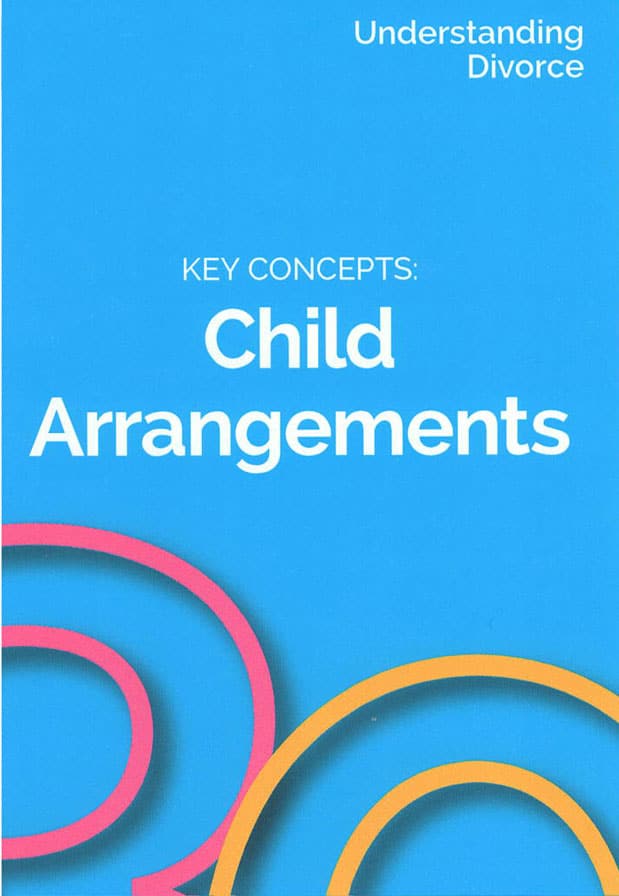Effective Child Support Alternatives: A Comprehensive Guide

Exploring Child Support Alternatives and Strategies
Raising a child encompasses a myriad of responsibilities, including the obligation of child support payments. While these financial obligations are typically mandated by law in most jurisdictions, other means of support extend beyond monetary contributions. In this article, we examine non-financial strategies for child support, methods to maximize limited resources, the significance of emotional backing, strategies to compensate for financial shortfalls, and addressing common queries around child support.
Exploring Non-Financial Strategies as Support Alternatives
Child support methods are not confined to financial support alone. A child benefits profoundly from love, care, and active participation of both parents. This forms an integral part of the parenting arrangement and plays a pivotal role in a child’s growth and development.
A strong parent-child relationship is the cornerstone of a child’s happiness. Quality time spent together, participating in their interests, and providing emotional support are invaluable. Involvement in their academic activities and offering guidance can have a positive influence on a child’s development. For example, a father aiding his child with their math homework helps the child not just academically, but also fosters emotional bonding, boosting their confidence and motivation.
A critical component of non-financial support is the creation of a safe and stable home environment where a child feels secure and cherished. It includes fostering open communication, which is crucial for the development of strong interpersonal skills and trust in their parents.
A healthy co-parenting relationship is equally important. When parents work collaboratively, putting their differences aside for the child’s well-being, they set a positive example. This helps the child feel loved and supported, fostering a sense of belonging.
Making the Most of Limited Resources for Child Support
Fulfilling child support obligations could pose a challenge when financial resources are limited. However, resourcefulness and creativity can compensate for this challenge. Prioritizing essential expenses like food, clothing, and educational materials is key.
External aid from community organizations, charities, or government programs could supplement limited resources. Initiatives such as discounted or free school supplies, clothing drives, or affordable daycare services can significantly ease the financial burden.
Investing in skill development to expand employability can also enhance the financial capacity for child support. Pursuing higher education or vocational training can lead to better job opportunities and a higher income. In most cases, gaining relevant certifications can significantly boost earning potential.
The Significance of Emotional Support
Emotional support plays a vital role in a child’s overall well-being and development. By providing emotional support consistently and fostering a positive co-parenting relationship, parents contribute significantly to a child’s emotional growth and stability.
Compensating for Financial Shortcomings in Child Support
In case of financial difficulties, open communication with the other parent is essential to reach a mutual understanding. Shared expenses could be one potential solution. Additionally, seeking legal advice and reviewing existing child support agreements or court orders can lead to adjustments aligned with the current financial situation.
Common Questions Around Child Support
- How to avoid paying child support? Child support is a legal obligation and avoiding or evading it can lead to serious legal consequences. Prioritizing the child’s best interests, seeking legal advice, or exploring options like mediation are recommended alternatives.
- Is child support necessary with 50/50 custody in Ontario? In jurisdictions like Ontario, child support is determined by multiple factors including income, number of children, and specific custody arrangements. It’s advisable to consult with a family law professional to understand specific child support obligations.
- How to pay less child support in Canada? In Canada, child support is calculated considering various factors. If there are substantial changes in circumstances, it may be possible to apply for a variation of child support, following proper legal channels.
In conclusion, raising children involves more than just financial support. By employing various strategies for child support, parents can ensure that their children flourish, even amidst challenging circumstances.
Child Support Mediation: Alternate Arrangements
In Child Support Mediation parents can agree to alternate child support arrangements:
The court has a limited ability to make a court order for child support in amounts different than what would normally be required by the Child Support Guidelines tables. aka table amount of child support.
The same rules apply to parents and guardians who are making agreements about child support. Without one of the Guidelines exceptions, the court is unlikely to uphold an agreement that provides for a child support payment that significantly departs from the Guideline amount.
This section talks about the most common exceptions to the Guidelines tables:
- where the payor earns more than $150,000 per year,
- where the parents have split or shared custody of the children,
- where a minor child has become financially independent,
- where undue hardship is claimed, and
- where other arrangements have been made for the direct or indirect benefit of the children.
With alternate child support arrangements, the parents must show that they made reasonable financial arrangements for the children. An example would be where the parents decide that one parent takes less than half the value of the house and gives the house to the other parent who continues to live in the house with the children. This is unusual, but how Soft Landings are created in Child Support Mediation.
Good parents pay!
This is why I encourage custodial parents to treat such suggestions with great suspicion and to resist these alternatives to child support. I’ve seen too many cases of parents taking advantage of such arrangements. Here are just a few examples:


ALTERNATIVE ARRANGEMENT: The parents plan to let their children spend equal time with each parent.
ACTUAL REALITY: One parent ends up being more flexible and responsible, spending more time with the children, leading to increased expenses for this parent with no child support to cover them.
ALTERNATIVE ARRANGEMENT: The parents sign a mutual agreement covering expenses for their kids. One parent routinely objects to expenses that the other parent deems important.
ACTUAL REALITY: The other parent is left with the unenviable choice of having to pay for these disputed expenses, or depriving their child of something they think is essential.
ALTERNATIVE ARRANGEMENT: The parents come to a mutual agreement over child custody and payments.
ACTUAL REALITY: One of the parents frequently has to ask the other for money, giving the parent who’s being asked for this money inappropriate control over the life of their former spouse.
ALTERNATIVE ARRANGEMENT: The parents agree that one of them should pay a fixed expense towards the house or car for the other.
ACTUAL REALITY: The parent supposed to be paying doesn’t always make the payment, leaving the other parent with the asset at risk and no child support.
ALTERNATIVE ARRANGEMENT: The parents plan to share expenses for their children.
ACTUAL REALITY: One parent always seems to be short of cash, leaving the other to make up the shortfall with no easy way of recording the other’s failure to pay.
Why Guideline Child Support may be the best
It’s remarkably consistent – calculating child support varies little from case-to-case and province-to-province, so there are seldom any shocks or surprises for either spouse.
It’s easy to manage – with whoever pays the support seeing the amount deducted from their paycheck, just like taxes. It’s something people quickly get used to and it makes things simple and predictable. Each parent knows what to expect and there’s no need for any negotiations.
It’s easy to collect – and if the parent who’s due to pay it is late, every state has procedures in place to ensure they stick to the agreed payment schedule, with many charging interest on late payments.
It’s popular with judges – just as the old business saying went: ‘nobody got fired for buying IBM,’ it’s just as true to say: ‘no judge ever got reversed for ordering guideline child support.” They’re a safe haven for judges who want a quick and effective way to lift some of their administrative burden, which is why so many of them default to the guideline option when they can.
Final Thoughts
Navigating the complexities of child support can be a daunting task for any parent. However, it’s essential to remember that child support extends beyond just financial obligations. It encompasses love, care, active participation, and emotional support, all of which play a pivotal role in a child’s growth and development.
In most cases, the child support order is determined by various factors, including the payor parent’s income, the number of children, and the specific parenting arrangement. While fulfilling these obligations can pose a challenge, especially when resources are limited, there are strategies to maximize these resources. For example, investing in skill development to expand employability can lead to higher income and better capacity to meet child support obligations.
It’s also important to note that extraordinary expenses, such as those for post-secondary education or extracurricular activities, can affect the amount of child support. In such circumstances, it may be necessary to revisit the child support agreement or seek legal help to understand how these expenses are factored into the child support payments.
Open communication and a healthy co-parenting relationship can make a significant difference in managing these responsibilities. In particular circumstances, such as financial difficulties, shared expenses could be a potential solution. Mediation process can also be a beneficial support solution to court proceedings, helping parties to reach a mutual understanding and agreement that best serves the child’s interests.
Finally, remember that the ultimate goal of child support, whether it’s a court case or a mutual agreement, is to ensure the well-being of the child. It’s about more than just money—it’s about providing a safe, stable environment where the child feels loved and supported. It’s about putting the child’s needs first, always.
In the end, how much child support is paid or received is less important than the positive impact it has on the child’s life. Whether you’re the paying parent or the recipient parent, your commitment to fulfilling your child support obligation is a testament to your love and dedication to your child’s well-being.
At DTSW:
We understand that navigating the complexities of child support can be overwhelming. You’re not alone in this journey. At DTSW, we recognize that raising a child involves more than just financial support. It’s about love, care, active participation, and creating a safe and stable environment for your child to thrive.
Our Team of Professionals is here to help you explore non-financial strategies for child support, maximize limited resources, and provide the emotional backing that is so crucial for your child’s growth and development. We believe in the power of collaboration and open communication, and we’re committed to helping you foster a healthy co-parenting relationship.
We know that you’ve come to this page because you’re seeking child support options and strategies to ensure the best for your child. We appreciate your dedication and courage in taking this step. Remember, every challenge presents an opportunity for growth and we’re here to support you every step of the way.
We invite you to reach out to us. Let’s explore together how we can turn these challenging circumstances into opportunities for your child to flourish.
Schedule a Get Acquainted Call with us today. Let’s start this journey together, the smart way.
Articles that may interest You!
Ken Maynard CDFA, Acc.FM
I assist intelligent and successful couples in navigating the Divorce Industrial Complex by crafting rapid, custom separation agreements that pave the way for a smooth transition towards a secure future. This efficient process is achieved in about four meetings, effectively sidestepping the excessive conflicts, confusion, and costs commonly linked to legal proceedings. Clients have the flexibility to collaborate with me either via video conference or in-person through a DTSW associate at any of our six Greater Toronto mediation centers, located in Aurora, Barrie, North York, Vaughan, Mississauga, and Scarborough.














































